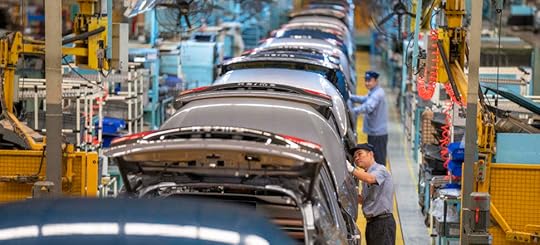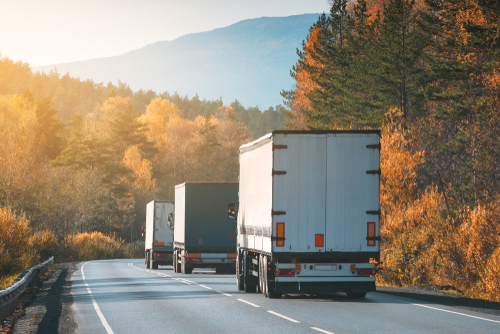Steve Bull's Blog, page 159
November 29, 2022
UAE Plans $150 Billion Spending Spree To Boost Oil Output To 5MM Barrels By 2027
With oil tumbling ahead of the grueling 2023 recession, the last thing OPEC+ and (bullish) oil traders wanted to see is even more supply coming on line, and yet that’s precisely what the a core gulf hub is proposing. According to Bloomberg, the United Arab Emirates – which in recent years has aggressively sought to diversify away from oil and to become the world’s crypto hub – will look to revert back to its core competency and plans to expand its global energy – and especially energy spending – to boost oil and natural gas production capacity.
Abu Dhabi National Oil Co., also known as Adnoc, will invest $150 billion in the five years through 2027, it said in a statement Monday. That’s an increase on the previous spending plan of $127 billion over five years that was announced a year ago.
The spending spree will try to raise crude output capacity to 5 million barrels a day by 2027, earlier than the previous target of 2030 and comes at a time when Saudi oil giant Aramco is also planning to expand its output by 12 million by 2027.
The UAE is the largest producer in the Organization of Petroleum Exporting Countries after Saudi Arabia and Iraq. It’s spending billions of dollars to pump more oil and gas, even as the country strives to reach net-zero carbon emissions by 2050.
Oil producers have benefited for most of this year from surging prices, driven in party by Russia’s invasion of Ukraine. While Brent crude has fallen back to near where it started the year, it climbed to more than $100 a barrel in February.
Adnoc will also form a new unit for gas processing and marketing, according to a statement. It will look to sell a minority share of the business, called Adnoc Gas, through an initial public offering in Abu Dhabi in 2023.
…click on the above link to read the rest…
The Laws of Thermodynamics Will Not Bend for Landfills
 Illustration by Rey Velasquez SagcalAn expert on waste management responds to
Palmer Holton’s “Universal Waste.”
Illustration by Rey Velasquez SagcalAn expert on waste management responds to
Palmer Holton’s “Universal Waste.”
You handle waste every day. Tissues. Bottles and cans. Kitchen scraps, maybe yard trimmings. And plastics. So many plastics. The wet, the dry, the smelly, and the disgusting.
But the stuff you personally put in this or that bin is the tiniest part of all the waste that arises in the United States and other countries whose economies are premised on mass consumption. Although numbers are tricky here, something like 97 percent of all waste arising in the United States happens before you—as citizen and consumer—buy, use, and toss the things you need and want for your daily life. If you live in a typical American city, all the garbage and recycling you see getting picked up at the curb is just that remaining 3 percent of overall waste arising.
In Palmer Holton’s story, a fictional company called Universal Waste promises to solve all this. Universal Waste’s marketeers claim the company will bring wealth and prosperity to Claremont, Kansas, by turning the local landfill into its opposite, a mine. The company wants to extract precious metals scattered in the landfill from generations of consumer discards interred in its bowels. But as much as the citizens of Claremont hope that renewed economic development can be reanimated from the landfill-now-mine, it turns out to be too good to be true.
So are the promises of Universal Waste’s real-world analogs. Today, companies promise that waste can, almost like magic, be converted back into treasure—methane from landfills turned into energy that reduces the “average carbon intensity” (but not total carbon) of major oil and gas firms; “500 kilotons” of plastics recycled back in to their chemicals. (That’s not even 1 percent of annual new plastics production in the U.S.)
…click on the above link to read the rest…
The planetary emergency we must avoid (spoiler alert: it’s not climate change)

Employees work on the production line of Haima 7X-E electric vehicle at Haima Automobile Haikou Base in China. Photo: Getty Images
The planetary emergency we must avoid (spoiler alert: it’s not climate change)Rather than expanding our renewable electricity production and developing an EV fleet, a degrowth approach would be to initiate a massive energy conservation programme and investing in cities where we can live, work and play within 15 minutes’ walking or biking
Opinion: Purchasing an EV is something more people are doing to reduce the worst impacts of climate change. EVs are attractive and increasingly convenient.
But is this reaction to the climate crisis an example of the wrong solution to the wrong problem? Is climate change, as serious as it is, even the most important problem to address?
Climate change is certainly an existential threat and more needs to be done to mitigate its worst impacts. Yet even if we stopped emitting greenhouse gases today, we would still face a range of environmental existential threats.
Part of the problem is we haven’t defined the problem correctly. Rather than trying to deal with specific issues such as climate change, biodiversity loss, pollution and so on, there is an underlying cause that connects these threats. Understanding the cause could provide a new approach to dealing with many of these challenges.
First let’s step back and try to understand just what the threat is. As far as we know Earth is the only planet in the universe with complex living systems, with a biosphere covering its surface.
The biosphere is an intricately balanced network of living and non-living systems interacting with each other in a self-regulatory manner. This rare web of life provides for us physically, economically, aesthetically and spiritually.
…click on the above link to read the rest…
These billionaire preppers are planning for the apocalypse. Here’s why
 Some tech billionaires are convinced that the end of the world is just around the corner.(Getty Images: FPG)
Some tech billionaires are convinced that the end of the world is just around the corner.(Getty Images: FPG)When Douglas Rushkoff was invited to speak to a group of mega-rich tech elite at a private desert resort, he thought he’d come fully prepared.
He was wrong.
Rushkoff, an author, theorist and professor at the City University of New York, had been asked to present an address on “the future of technology”.
For his services, Rushkoff was offered an exorbitant fee — about a third of his annual professor’s salary — along with flights and a three-hour limo ride to the mystery location
“[When I arrived], instead of bringing me out onto a stage, they brought these five guys into this green room where I was getting ready. And they said, ‘this is it’,” he tells ABC RN’s The Drawing Room.
The small group was from the “upper echelon of the tech investing and hedge fund world” and at least two were billionaires.
Initially, Rushkoff was peppered with a few innocuous questions.
“They asked me all the typical questions that tech investors ask, like, ‘what’s better, Bitcoin or Ethereum? Virtual reality or augmented reality?'” he says.
But then the real conversation started. It became clear why Rushkoff had been summoned to the desert.
“How do I maintain authority over my security force after ‘the event’?” one of the men asked.
New Zealand or Alaska?
Rushkoff says ‘the event’ is a euphemism for the end of society — which could be “environmental collapse, social unrest, nuclear explosion, solar storm, unstoppable virus, or malicious computer hack that takes everything down”.
These five men were mega-rich preppers convinced that society could collapse at any moment, and were keen to get Rushkoff’s opinions on how to survive and thrive.
…click on the above link to read the rest…
Are Progressive “Experts” Fallible? Yes, But Don’t Tell Them That

It can be argued that the world has reached the sorry state it’s in today largely because academics, politicians, “distinguished experts,” and “recognized authorities” did not have the humility to admit their own mistakes or to at least recognize the limits of their knowledge. Of course, this is far from a new affliction in societies and political systems. Hubris was among the most terrible sins that the ancient Greeks warned against, and there have been too many narcissists in positions of power to count since the emergence of the first organized societies. People who believe they know best, not just for themselves, but everyone else too, are naturally attracted to roles that would allow them to impose their will, their morality, and their values on their neighbors.
However, one also can argue that the problem is much more prevalent today than at any other time in our history. The modern news landscape, both mainstream and social media, the supercharged propaganda machines of all developed nations, and our public education system, ensure that dangerous figures will hardly be challenged by anyone once presented to the public as de facto, “recognized,” and “widely accepted” authorities. This is also true of politicians, but things are infinitely more perilous when it comes to science. The average citizen can more easily question a political stance directly, whereas it can be impossible to judge the merits of a scientific one without detailed and specific knowledge.
Therefore, it is much easier to “sell” any academic, from professors to junior researchers, as an “authority,” one that must be obeyed and never questioned. They can freely give us all advice on how to live our lives, and they can even dictate policy, despite the fact that usually that kind of thing tends to have side effects in areas they have absolutely no clue about…
…click on the above link to read the rest…
Canadian Banks Slammed For Continued Fossil Fuel Investments
An investor group has criticized Canadian lenders for investing heavily in fossil fuels despite the Paris Agreement, noting that all of the largest Canadian banks still need to be ready for net zero.
In a report titled Net Zero Policy Report Card, Investors for Paris Compliance graded Canada’s largest banks on several indicators, including fossil fuel investments, climate targets, and emissions reporting.
In fossil fuel investments, all banks were revealed to have increased their exposure between 2020 and 2021, by between 25 percent—TD and BMO—and 132 percent for CIBC.
According to the report, RBC invested $48.5 billion in fossil fuels last year, up 101 percent on 2020, and Scotiabank increased its exposure to the sector by 87 percent to $38 billion.
TD’s fossil fuel investments rose to $26.4 billion, and BMO’s went up to$23.5 billion. CIBC invested $27.8 billion in fossil fuels in 2021, Investors for Paris Compliance said, noting that the sixth bank under review, National Bank, had no data published on its fossil fuel industry exposure.
The report is the latest example of investor pressure on financial institutions to reduce their lending to the fossil fuel sector and focus on emission reporting and reducing measures in line with international Paris Agreement commitments.
This, however, stands in stark contrast with warnings, including from the IEA, that not enough is being invested in the new supply of fossil fuels, including coal, which this year saw a real renaissance.
…click on the above link to read the rest…
November 28, 2022
The Real Environmental Disaster: Toxic ‘Forever Chemicals’ Everywhere, Even Babies’ Umbilical Cords
The corporate state assumes for itself the role of environmental savior, ordained by God Himself to wage holy war against “climate change.”
But it doesn’t apparently care too much, strangely, about the ongoing synthetic “forever” chemicals infestation of literally everything, including the food and water, which eventually make their way into even babies’ umbilical cords.
Via Environmental Working Group:
“EWG scientists reviewed 40 studies examining the presence and health effects of PFAS [perfluoroalkyl and polyfluoroalkyl substances] in cord blood. All 40 reported the detection of a wide range of PFAS in the blood. Sixteen studies found associations between PFAS exposure in cord blood and changes in vital body molecules called cord blood lipids, as well as harm to fetal and childhood development.”
Babies will get to enjoy those plastics for the duration of their lifetimes, from cradle to grave.
PFAS, per the National Institutes of Health, are used universally in all kinds of everyday products from food packaging to carpets to the water supply. The social engineers also lovingly add PFAS to COVID masks – the kind that schoolchildren who have no appreciable health risks are forced to wear in order to receive an education.
PFAS have earned the charming nickname “forever chemicals” because, as the name suggests, they don’t degrade in the environment like organic molecules and they stay in the body forever.
The body’s natural detoxification organs, the liver and kidneys, are incapable of filtering them out. Once ingested, they remain unmolested in the blood and tissues.
One doesn’t need a degree in The Science© to understand why babies administered a steady diet of PFAS isn’t an optimal situation health-wise. Here are a few reasons anyway:
…click on the above link to read the rest…
Conditioned To Believe
In a High-Tech Future We Trust
 Photo by John Fowler on Unsplash
Photo by John Fowler on UnsplashMany of us believe firmly in a Star Trek world to come, where technology and science would eventually have an answer to every problem we face today: from cancer to infinite growth on a finite planet. (Not that these are two different things at all.) This vision of the future certainly makes enduring life easier: it’s not unlike Promiseland here on Earth. It is giving people the hope that their descendants — far-far into the future — will have a better life, without the toil and suffering. Heck, in the big scheme of things fans of high-tech can even feel proud that they are part of this success story right here and now! A story of a single species from a fairly uninteresting planet conquering the entire Universe, bringing freedom and democracy even to the farthest reaches of the galaxy…
Is it possible though, that all this is but a magician’s trick, and we have been lured to believe in a future which might never come?
Remember Pavlov from biology class, who trained dogs by ringing a bell whenever he gave them food? After a few repetitions his dogs started to salivate in hopes of getting tasty bits just by hearing the bell ring. This is a perfectly normal reaction universally observable across all mammals, humans included. According to Britannica:
conditioning is a behavioral process whereby a response becomes more frequent or more predictable in a given environment as a result of reinforcement, with reinforcement typically being a stimulus or reward for a desired response
…click on the above link to read the rest…
November 27, 2022
‘A gentle calm’: France’s streets once again echo to sound of working horses
 Dispar, a Breton draft horse, pulls refuse collectors in Hennebont, Brittany. Photograph: Thomas Louapre/The Guardian
Dispar, a Breton draft horse, pulls refuse collectors in Hennebont, Brittany. Photograph: Thomas Louapre/The GuardianTowns say they are not driven by nostalgia as they opt for horsepowered bin collections and school runs
The clip-clop of hooves marked the start of the morning rubbish collection in the Brittany town of Hennebont, as Dispar, a Breton draft horse, pulled a small cart towards the waste bins on a central street.
“This job is so much nicer with an animal,” said Julien, 38, who usually worked emptying bins on to a motorised rubbish-truck in another town but was training in horse-drawn techniques. “People see you differently, they say hello instead of beeping. This is the future, it saves on pollution, petrol and noise. And it makes people smile. Normally, I’d be constantly breathing in exhaust fumes behind my lorry, so this feels much healthier.”
Faced with climate breakdown, the energy crisis, and modern stress levels, there is a growing movement in French towns to bring back the horse and cart as an alternative to fossil fuels and a way to slow down urban life.
Florence, an estate agent in Hennebont, always stepped out of her office to watch the horse-drawn bin cart pass. “When I hear the sound of the hooves it’s just total happiness to me,” she said. “It brings a kind of gentle calm in these frantic times. It brings a bit of poetry into daily life, a reminder that things can be more simple. If I could live in a world without cars, I would.”
Since the first trials to reintroduce draft horses for municipal tasks in the mid-1990s, the number of French towns and urban areas using them has multiplied by almost 20 and continues to rise…
…click on the above link to read the rest…
Spotlight: The Diesel Fuel Crunch

PRICE OF DIESEL FUEL SETS RECORD
While gasoline prices have risen 14 percent so far this year, diesel’s price has shot up by 50 percent to a record $5.35 a gallon, according to the American Automobile Association.
As of 17 November, the U.S. average price of diesel was $1.61 more than that of gasoline; a year earlier, the difference was 23 cents, The Wall Street Journal noted.
Diesel is more expensive than gas because of the additional steps involved in refining clean versions of it from crude oil and because it carries higher taxes.
Also as of last week, the U.S. had only a 25-day reserve of diesel, the least since 2008, the U.S. Energy Information Administration reported.
The shortage is due to the Ukraine war and Western sanctions; unlike Russia’s crude oil exports, its diesel shipments have fallen sharply because of the conflict.
Also, Russia has cut off virtually all natural gas supplies to Europe, forcing electricity generating plants there to shift from gas to diesel as fuel, spiking demand for shrinking supplies.
In addition, an unusually cold winter and hot summer in North America hiked natural gas prices when demand jumped. Oil refineries, which are fueled by natural gas, cut gas use when their fuel’s price leaped.
China’s heat waves this year were related to blackouts, leading Beijing to cut exports of oil and related products to protect domestic supplies.
The diesel shortage also is partly a byproduct of the COVID era.
During the COVID War, demand crashed for transport fuels. As a result, some U.S. refiners permanently shuttered older plants and have not found it economically feasible to start them up again, in part because expensive equipment upgrades would be required.
Also because of the war, U.S. refiners have been shipping diesel to Europe to help ease its fuel shortage. The shortage has lifted diesel prices there well above what they are at home.
…click on the above link to read the rest…



